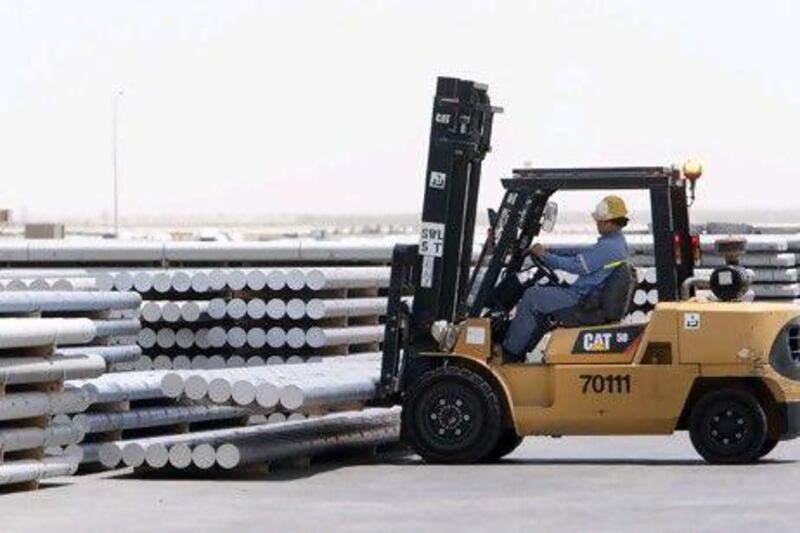Emirates Aluminium is preparing incentives for companies to set up next to its new smelter near the border between Abu Dhabi and Dubai, including a limited-time discount on the metal it produces.
More Business news: Editor's pick of today's headlines
Last Updated: May 10, 2011
Thomas Cook hit for £22m amid Middle East cancellations Thomas Cook reports that it has lost GBP22 million because of unrest in the Middle East and North Africa. Read article
:Fujairah plant set to power up Northern Emirates Fujairah power and water plant enhances the emirate's importance as a strategic UAE energy hub. Read article
HSBC posts first-quarter profit surge HSBC sees big gains in the Middle East in spite of the recent unrest, but cost-cutting measures worldwide are still looming for the bank after its layoffs in the region earlier this year. Read article
Market braced forTamweel return Tamweel's shares are expected to fall sharply on its first day of trading for two years but analysts are more optimistic on its bond. Read article
Prices for luxury London property climbing on foreign demand Industry Insights // Prices in London's elite neighbourhoods are soaring, boosted by strong overseas demand, but they are barely moving elsewhere in the UK. Read article
[ Back to business ]
The incentives aim to promote an industrial ecosystem around the smelter project.
In partnership with the Abu Dhabi Government, Emirates Aluminium (Emal) can provide help with transport, infrastructure development and export to newcomers who, for example, extrude aluminium into car parts, roll it into foil and cans, or cast it into engine blocks.
About 30 per cent of the aluminium Emal produces - 225,000 tonnes a year at its current capacity of 750,000 tonnes - has been set aside to help make the new Khalifa Port an aluminium centre, Saeed al Mazrooei, the president and chief executive of Emal, said yesterday.
The aluminium discounts offered will come through savings on transport and logistics, rather than a direct subsidy.
"There will be some discount, but for a certain period of time," Mr al Mazrooei said.
"We already allocated almost 30 per cent of [aluminium production] for the local market here. We're trying to encourage the downstream industry within the Khalifa Port zone."
Aluminium has emerged in recent years as a key part of Abu Dhabi's plan to diversify its economy away from hydrocarbons. Along with semiconductor making, aerospace and property, production of the metal has grown into a major focus of development within the non-oil economy.
The aim to build a group companies around Emal's smelter is to keep more of the value created by processing the metal within the UAE.
Mr al Mazrooei said contracts had already been signed with two companies, and negotiations were progressing with two more.
"Today we have a contract with two companies for the downstream industry," he said. "So we are accelerating that process.
"We have also an additional two companies we are negotiating with to finalise the contract, and we are hoping in a year's time to have at least four companies."
One of the companies is a US$200 million (Dh734.5m) joint venture between Dubai's Gulf Extrusions and the Abu Dhabi Basic Industries Corporation (Adbic), an industrial conglomerate owned by the Abu Dhabi Government.
Construction is expected to begin in the third quarter of this year, with completion scheduled for next year and production starting in 2013.
Gulf Extrusions and Adbic executives are expected to finalise a name for the plant next week.
Modar al Mekdad, the general manager of Gulf Extrusions, said the joint venture was just one example of a range of new opportunities for aluminium extruders and other producers.
"We can as Gulf Extrusions create another 10 or 20 downstream companies to diversify the product range and the market presence," he said. "There are also lot of European companies that are interested to come to the region and invest."
Aluminium production across the Gulf is expected to reach more than 5 million tonnes a year by 2015, about 10 per cent of global supply.





